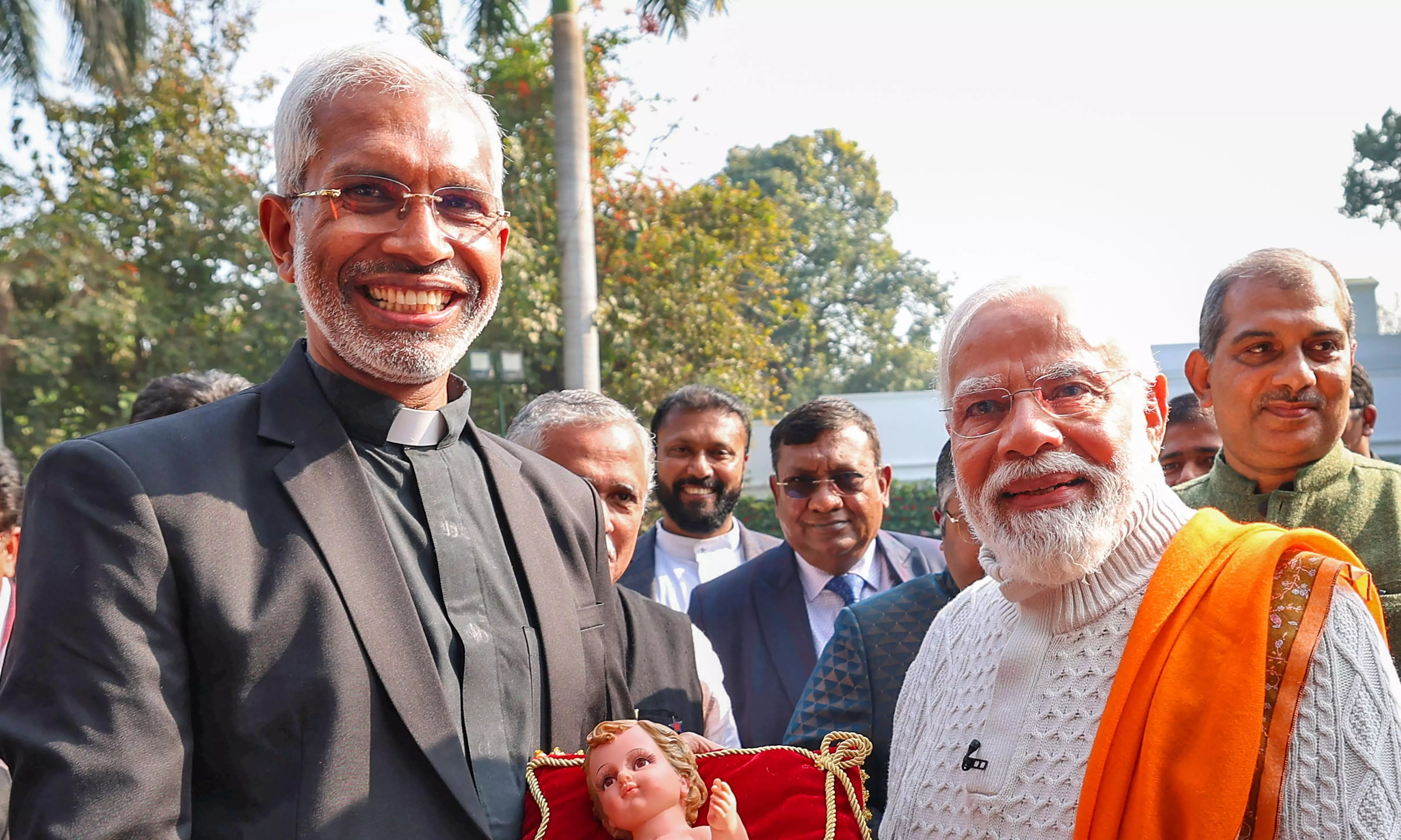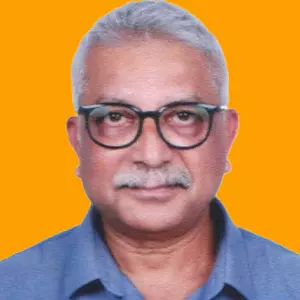
- Home
- India
- World
- Premium
- THE FEDERAL SPECIAL
- Analysis
- States
- Perspective
- Videos
- Sports
- Education
- Entertainment
- Elections
- Features
- Health
- Business
- Series
- In memoriam: Sheikh Mujibur Rahman
- Bishnoi's Men
- NEET TANGLE
- Economy Series
- Earth Day
- Kashmir’s Frozen Turbulence
- India@75
- The legend of Ramjanmabhoomi
- Liberalisation@30
- How to tame a dragon
- Celebrating biodiversity
- Farm Matters
- 50 days of solitude
- Bringing Migrants Home
- Budget 2020
- Jharkhand Votes
- The Federal Investigates
- The Federal Impact
- Vanishing Sand
- Gandhi @ 150
- Andhra Today
- Field report
- Operation Gulmarg
- Pandemic @1 Mn in India
- The Federal Year-End
- The Zero Year
- Science
- Brand studio
- Newsletter
- Elections 2024
- Events
- Home
- IndiaIndia
- World
- Analysis
- StatesStates
- PerspectivePerspective
- VideosVideos
- Sports
- Education
- Entertainment
- ElectionsElections
- Features
- Health
- BusinessBusiness
- Premium
- Loading...
Premium - Events

The United Christian Forum says invitees to the PM’s event did not raise critical issues the community faces, instead, they posed selfies and showered praises
More than 3,000 Christians backed a signature campaign against church leaders meeting Prime Minister Narendra Modi for lunch on Christmas but not voicing concerns over attacks on the community, the United Christian Forum (UCF) said in an emailed press statement on January 4. UCF is a platform set up in 2014 to provide legal help to Christians.
The campaign, “Not in our name, Christmas celebration with the PM is not in our name!” was initiated by Jesuit priests Cedric Prakash and Prakash Louis, and lay leader John Dayal. The campaign letter recounts the contribution of Christians to the nation in education, healthcare and outreach to the poor but asserts that since 2014, the community has been facing “vilification” and “attacks,” the most serious being on tribal Christians in Manipur.
It regrets that the invitees to the PM’s Christmas lunch did not raise these issues. The PM also did not condemn the attacks, it notes. Instead, the press release says the invitees ingratiated themselves by clicking selfies and expressing gratitude.
‘Concerns not aired’
Prakash, who is based in Ahmedabad, was pleased with the 3,200 signatures the campaign collected over two days. He said the invitees could have politely declined the invitation, or, having accepted it, conveyed to the PM the disquiet among religious minorities, including Christians, and their sense of insecurity. Prakash used to run a human rights organisation called Prashant, which has been closed down. He is a trustee of activist Teesta Setalvad’s Citizens for Justice and Peace (CJP).
A Press Information Bureau (PIB) release about the Christmas lunch said Christian community leaders hailed the PM’s vision for the country. In turn, the PM acknowledged the contribution of the Christian community to the nation and how the Pope’s concern for poverty eradication resonated with his “mantra” of ‘sabka saath, sabka vikas, sabka vishwas aur sabka prayas’. Among the prominent invitees were Cardinal and Archbishop of Bombay Oswald Gracias, Kevin J. Kimtis, Second Secretary of the Vatican Embassy, Paul Swarup, Bishop of Delhi, Church of North India, Anil Couto, Archbishop of Delhi, John Varghese, Principal of St. Stephen’s College and Christian business and corporate leaders.
The cardinal praised the PM’s “passion” for governance. Incidentally, the cardinal had released a video last year in which he said that the clashes in Manipur were tribal, and not essentially religious, in nature. A Supreme Court judgment of August last year on the Manipur issue mentions that 227 churches were destroyed in the violence there from May onwards.
Two days after the event, Peter Machado, the Metropolitan Archbishop of Bangalore, issued a press statement appreciating the PM for celebrating Christmas at his residence, but noted that “the vast majority of the Christian community is unhappy” because the PM “had failed to address their other concerns.” The Christian community would have “greatly appreciated” if the PM had addressed the Manipur issue and given an assurance that Christians could live “without any fear or threats by enjoying their Constitutional rights”.
Activists raise Manipur issue
On December 29, six activists addressed media at the Press Club of India in New Delhi, in contrast to Christian religious leaders' celebratory mood at the PM’s event. They drew attention to the destruction of churches in Manipur and the displacement of tribal Christians there, the denial of approval to many Christian charities for receipt of foreign donations, the use of anti-conversion laws in BJP-ruled states to harass Christians and the incarceration of scores of pastors and lay Christians, mainly in UP, allegedly for illegal conversion.
Among those who addressed the conference were Apoorvanand, Delhi University professor, John Dayal, spokesperson of UCF, Mary Scaria, a nun and Supreme Court lawyer, Minakshi Singh of the Congress’ minority department and Shabnam Hashmi, a human rights activist.
UCF, which runs the helpline 1800-2084545, recorded 720 incidents of attacks and harassment of Christians last year for their religious activities, of which about 400 were in UP, its coordinator AC Michael said. In September 2021, UCF, through Archbishop Machado, had petitioned the Supreme Court to order investigations into the attacks on Christians. It had compiled a list of such incidents and the SC had sought the responses of various states.
‘Don’t endorse campaign’
Pushback against the signature campaign has come from Roby Kannanchira, a Carmelite priest of the Syro-Malabar Catholic rite, who is active in inter-religious dialogue. In a letter, he had urged members of the Conference of Religious, India – an official church body – not to endorse the signature campaign.
In response, Anand Mathew, a priest of the Indian Missionary Society, Varanasi, wrote an email rebutting Roby. Mathew said Christians needed to articulate their anxiety over the police harassment they were facing. He mentioned two instances where Catholic priests of the Varanasi and Allahabad dioceses were jailed on various pretexts and could obtain bail only from the Supreme Court.
The Christmas lunch was the first such event hosted by the PM. Last April, on Easter Sunday, he visited Sacred Heart Cathedral in an overture to the Christian community. That contrasts with his government labelling December 25 as Good Governance Day in 2014. But the following year, then finance minister Arun Jaitley hosted a high tea for Christians on December 29, at which Cardinal Gracias was a prominent invitee.
(The Federal seeks to present views and opinions from all sides of the spectrum. The information, ideas or opinions in the articles are of the author and do not necessarily reflect the views of The Federal.)


